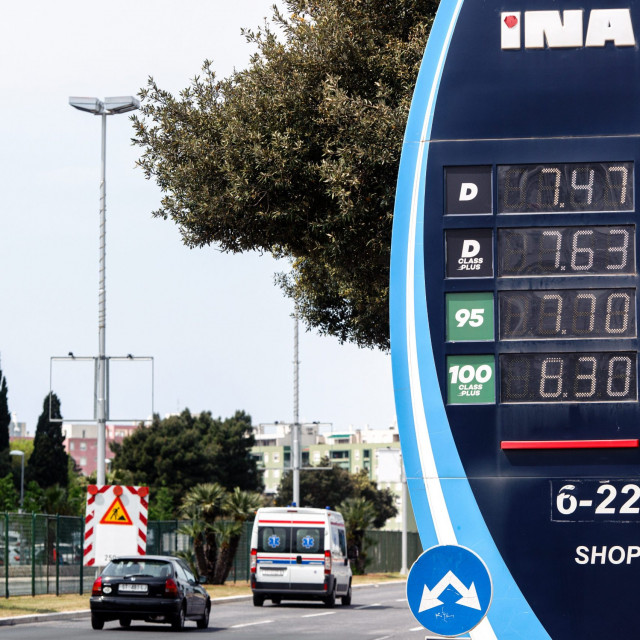
The INA-JANAF memorandum of understanding is a non-binding document signed on 21 August 2018 with the goal of creating prerequisites for the adoption of business decisions which ensure greater profitability and the viability of INA's refining and thereby the whole company, INA said in a press release in response to the Nacional article.
JANAF responded too, saying in a press release that its management was planning and undertaking business activities aimed at increasing the company's revenue and profit as well as reducing and consolidating expenses.
INA explained the memorandum also in the context of its INA R&M New Direction 2023 programme, which was launched in 2018 and which envisages concentrating oil processing in the Rijeka refinery and transforming the Sisak location into an industrial hub.
INA said the memorandum envisaged a better optimisation of oil transport between JANAF's Sisak terminal and INA's Sisak refinery to enable selling oil at market prices and generating greater economic value. Oil from Croatian fields is processed at the Rijeka refinery and part of it is sold at market prices, INA said, adding that the Rijeka refinery processed more effectively 20% more oil than before and that the quantities covered Croatia's requirements.
Energy Minister Tomislav Coric said on Tuesday the government was interested in a strong INA and that a memorandum of understanding between the oil company and the JANAF oil pipeline operator, mentioned in a weekly today, was aimed at maximising the two companies' business results.
"Since 2016, the Croatian government has been interested in a strong INA and a strong energy sector in Croatia," Coric told reporters, adding that on June 9 the government would receive a preliminary report from Lazard and its partners estimating INA's worth, after which further steps would be taken.
As for the INA-JANAF memorandum of understanding discussed in the latest issue of the Nacional weekly, Coric said it projected the business interests of INA and JANAF with the aim of maximising their business results.
Nacional says it obtained the secret memorandum whereby, the weekly claims, Prime Minister Andrej Plenkovic allows the export of Croatian oil to Hungarians and that this year 247,000 tonnes of oil has been transported from Sisak to Hungary instead of Rijeka.
The memorandum was signed on INA's behalf by management board president Sandor Fasimon and member Niko Dalic, on JANAF's behalf by management board president Dragan Kovacevic, and co-signed by Coric on behalf of the energy ministry, Nacional says, adding that the memorandum undermines national interests.
"That memorandum envisages first and foremost connecting the oil refinery in Sisak to the JANAF storage in the Sisak area. On the other hand, it envisages certain works in the Rijeka port which facilitate a more effective functioning of INA and JANAF's transport system and, finally, it envisages INA's commitment to sending, as a member of the MOL Group, as much oil from JANAF's terminal in Omisalj to refineries in Hungary and Slovakia," Coric told the press.
INA's functioning as a successful company is in Croatia's interest regardless of ownership shares, he added.
"At this moment we don't have a controlling ownership share. INA couldn't have been a successful company when its refining was such that the Rijeka Refinery worked at 70 to 80% capacity, while the Sisak Refinery worked at 20 to 30% capacity. That's why the decision made in the past period, to transform the Sisak Refinery into a logistics centre with certain production sections, was met with understanding at the Environment and Energy Protection Ministry," Coric said.
He sees INA as a vertically integrated company with all its components, as a company which boosts its production in the context of third generation fuels, and the Sisak Refinery transforming into a bioenergy plant.
Asked if it was more cost-effective to send Croatian oil to Hungary for processing and than back to Croatia or to process it in Rijeka, Coric said that to send meant to sell.
"A smaller part of the oil from the Sisak area is transported to the Rijeka Refinery and the bulk to Hungary. As for profitability, selling part of the oil and processing another is better in the long term than having one refinery working at 70 to 80% capacity and the other at 20 to 30%."
Coric justified the signing of the memorandum with long term benefits for INA and JANAF, with one company co-owned and the other wholly owned by Croatia.
In the memorandum, both companies define their interests. For INA, that is connecting the Sisak Refinery to the JANAF storage a few kilometres away. For decades, the Sisak Refinery was an isolated transport system and in the document both sides state their willingness for the connection to occur.
JANAF's interest is for INA, as a member of the MOL Group, to clearly state in the memorandum its intention to transport in the period ahead a larger quantity of crude oil from Omisalj to MOL's refineries in Hungary and Slovakia.
Asked if the government's promise of three and a half years ago still stood, that INA would return into Croatian hands, Coric said the promise was made in positive economic circumstances, before the Agrokor conglomerate's crisis happened.
He said the process was also slowed by the cancellation of a contract with a consulting company.
Coric said the government did not scrap the plan to buy INA back from MOL and stressed that the government's relationship with the MOL Group partners had been fair in recent years.






Komentari
0